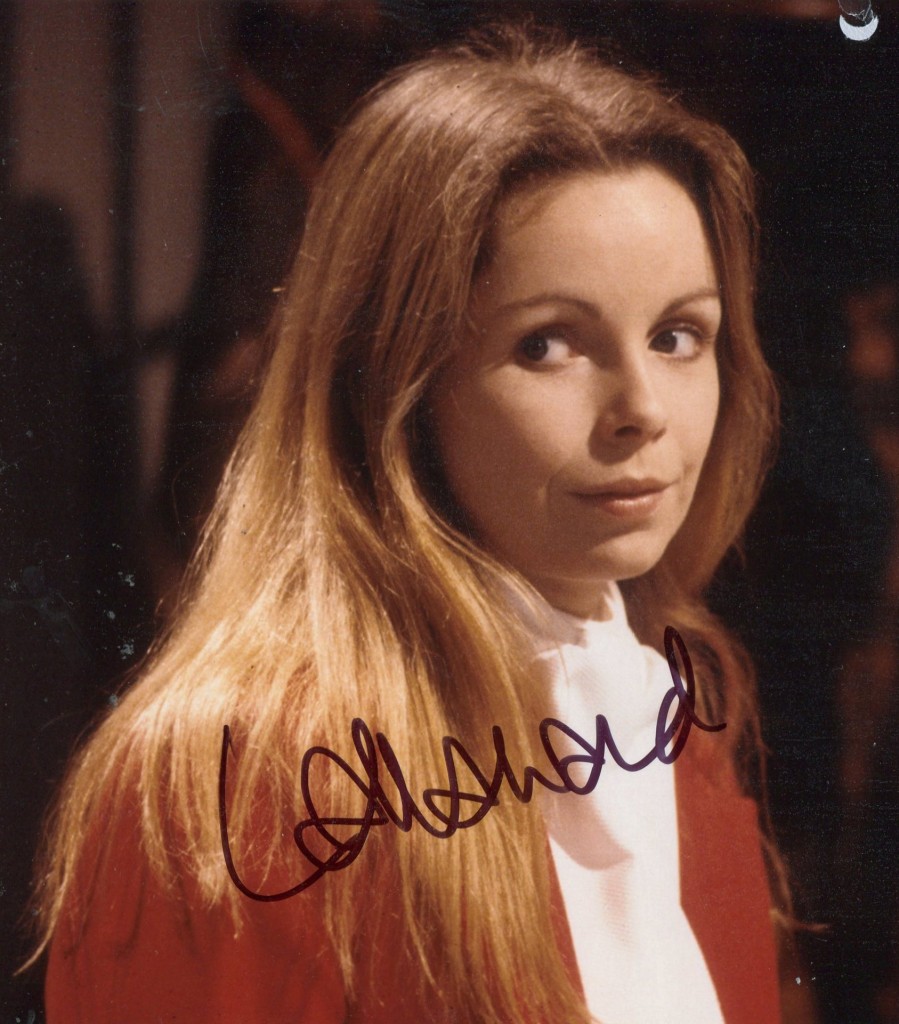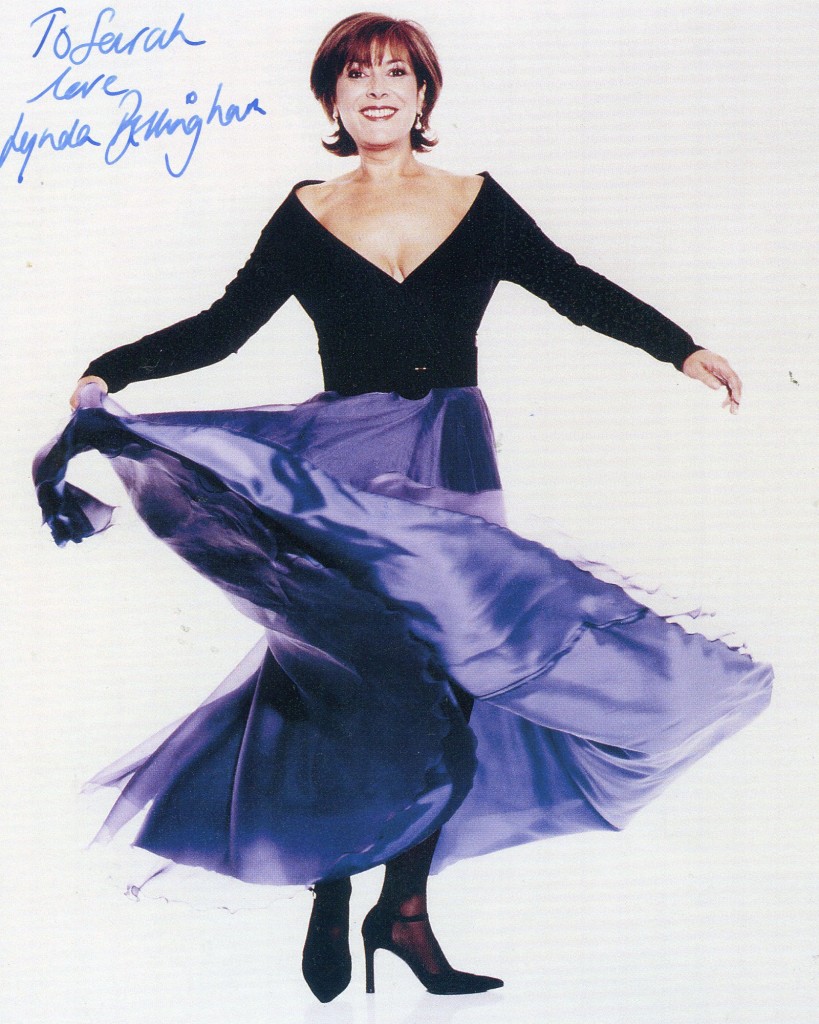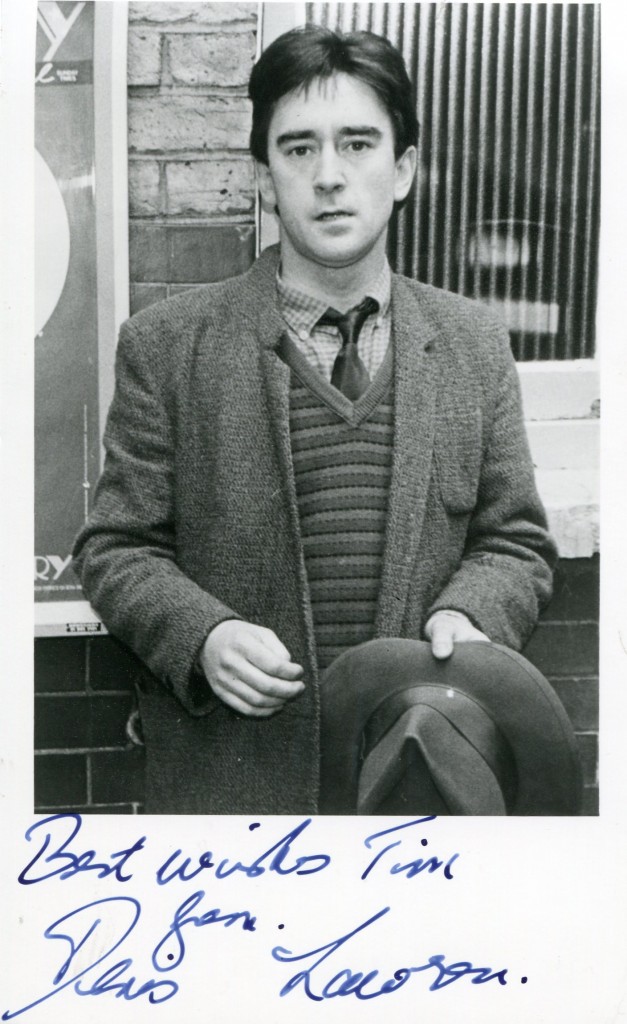
Lalla Ward was born in 1951. She is best known for her role on BBC TV’s “Dr Who” opposite Tom Baker. She is married to the biologist Richard Dawkins.

Brittish Actors

Lalla Ward was born in 1951. She is best known for her role on BBC TV’s “Dr Who” opposite Tom Baker. She is married to the biologist Richard Dawkins.

Tim McInnerny was born on September 18, 1956 in Cheadle Hulme, Cheshire, England as Timothy L. McInnerny. He is an actor, known for Notting Hill (1999), 101 Dalmatians(1996) and Black Death. Older brother of actress Lizzy McInnerny. Is an Oxford (Wadham College) graduate.

TCM Overview:
While it was not surprising to see Royal Shakespeare Company player Olivia Williams in screen productions based on the works and life of Jane Austen, it was a pleasant surprise that the actress was able to avoid the costume drama typecasting of so many of her classically trained British peers. She was perhaps a bit too often cast as quietly suffering stiff-upper lippers, but able to carry off the “sensitive beauty” with humor, strength or wilting melodrama as called for. Williams worked in Hollywood as a supporting player in big budget studio films like “The Sixth Sense” (1999), but also split her time between American and British independent films. She showcased an accessibility and wicked wit in comedies like “Rushmore” (1998) and “Lucky Break” (2001) and uncommon depth in “The Heart of Me” (2002), proving an adept supporting player whose luminous beauty was backed by a fierce intellectualism.
The above TCM Overview can also be accessed here.

“Guardian” obituary by Stuart Jefferies:
Lynda Bellingham, who has died aged 66, played many roles during her five-decade professional career, but became synonymous with one. “Being a mum making gravy was not quite how I had seen my career advancing,” she said once. But between 1983 and 1999 that’s what she did in 42 “episodes” of an award-winning TV ad. Since the early 1980s, her name was rarely mentioned in print without it being prefaced with “Oxo mum”.
During her career, though, she starred on TV as the vet’s wife Helen Herriot in All Creatures Great and Small in the 80s and as one of two divorcees trying to forge a relationship in the 90s sitcom Second Thoughts, opposite James Bolam. On stage she was best known for playing the lead in a touring production of Calendar Girlsbetween 2008 and 2012. She was also, for four years between 2007 and 2011, a regular member of the team on Loose Women, the daytime TV chat show. She had few regrets about how her career turned out, summarising its trajectory thus on her website: “Arrived in London at the Central School [for Speech and Drama] in 1966 and never looked back. I had a ball!”
Bellingham, though, knew that gravy, like Lady Macbeth’s damned spot, left an indelible mark. “In many ways I was very proud of what we did, but there is no doubt that my credibility as an actress was knocked,” she reflected. “Certain people in the industry would never employ me as a serious actress after it. On the other hand, it gave me the financial security to go off and work in the theatre for very little money.” Her performances as Mrs Oxo were reportedly responsible for a 10% increase in stock cube sales.
But being typecast in the role of, as she put it in her autobiography, “the nation’s favourite mum”, wasn’t the only reason she missed out on roles that could have sent her career in a different direction. Her friend the writer Lynda La Plante once rang to ask her if she was interested in playing a detective for television. Too busy with sitcom and advertising jobs, she turned down the chance to play DI Jane Tennison, later taken by Helen Mirren. Bellingham used her autobiography, Lost and Found (2010), to complain about the fact that she was never allowed to reprise her 1986 role as a time lord on Doctor Who during its revival under Russell T Davies.
She was born Meredith Lee Hughes in Montreal, Quebec. Her Canadian birth mother, Marjorie Hughes, gave her daughter up for adoption to an English couple. Her biological father, Carl Hutton, was a crewman whom Marjorie met on board ship as she sailed from Canada to New Zealand to meet the parents of her husband, a pilot who was missing in action during the second world war.
Her adoptive parents, Don and Ruth Bellingham, had been staying in Canada, where Don was training pilots for the British Overseas Airways Corporation. The couple returned to the UK and raised the girl they called Lynda on their farm near Aylesbury, Buckinghamshire, with their two biological daughters, Barbara and Jean. Lynda found out she was adopted only when she was in her teens. She recalled the revelation in her autobiography: “One day, when I skipped school to go to the pictures, my mother blurted out: ‘The trouble is, Lynda, we just don’t know who you are any more. God knows where you come from. We’ll never know. We’ve dreaded this moment.’” In 1990, she met her birth mother in Canada and they stayed in touch until Marjorie’s death.
She developed an enthusiasm for acting at school and in local theatre clubs, but gave her best early performance at the Central School, where, after receiving a rejection letter, she turned up in person and demanded of George Hall, head of stage, that he reconsider. Hall told her he would not but, when she returned home dejectedly, her parents told her that they had just got off the phone – he had changed his mind and given her a place. Why? Bellingham reported it was because Hall believed that “even if I was the worst actress in the world, I would always work because I was so pushy”.
Bellingham proved just as dogged as Hall hoped. After graduating she worked in Frinton and Crewe, amassing the 40 weeks of theatre necessary to get an Equity card. Then, she believed, TV and cinema stardom would follow. She was rejected for a role on ITV’s early 70s afternoon soap General Hospital because, as she put it, they were casting a pretty nurse and a fat nurse and “I fell into neither category”. Undaunted, she put her hair in a bun, rouged her cheeks, sported flat shoes, and wore a dress that cut her legs across the calves, making them look twice their normal size. Thus attired, she demanded a second audition as the fat nurse – and got the part, as Nurse Hilda Price.
Her romantic life, which she detailed unflinchingly in her autobiography, included two disastrous marriages. She married the film producer Greg Smith in 1975. Shortly after the wedding, he cast her in the film Confessions of a Driving Instructor. “I had only been married a few weeks and my husband, the Big Producer, was screwing his way through all the female artists,” she recalled. “Just not me.” They divorced soon afterwards.
Her second marriage, in 1981, was to a Neapolitan restaurant owner, Nunzio Peluso, with whom she had two children, Michael and Robbie. This turned out worse. He submitted her to 15 years of physical and mental abuse and after their divorce in 1996 was subject to a restraining order. She wrote, with understatement: “Playing the nation’s favourite mum on screen and going home to an unhappy and abusive relationship was extremely stressful.”
On her 60th birthday, in 2008, she was married for a third time, to a mortgage broker Michael Pattemore, with whom she later ran a property business based in London.
Among the roles she was particularly proud of were playing opposite Janet Suzman and Maureen Lipman in the Old Vic’s production of The Sisters Rosensweig at the Old Vic (1994-95) and in the Royal Court production of a drama about sex tourism, Sugar Mummies (2006). She also played the Empress Alexandra in Gleb Panfilov’s Russian film The Romanovs: A Crowned Family (2000), about the last year and a half of the lives of Tsar Nicholas II and his family until their execution in July 1918. Her voice was dubbed into Russian. In 2009, she appeared on Strictly Come Dancing, and was eliminated in the fourth week. In 2012, she presented a daytime cookery series, My Tasty Travels, and in 2013 Country House Sunday.
In 2013, she disclosed on Twitter that she had been diagnosed with cancer, and last month announced that she had chosen to stop having chemotherapy. She was made OBE in the 2014 New Year’s honours list.
Bellingham is survived by her husband and sons.
• Lynda Bellingham, actor, born 31 May 1948; died 19 October 2014.
The above “Guardian” obituary can also be accessed online here.
The above “Guardian” obituary can also be accessed online here.

Denis Lawson was born on September 27, 1947 in Perthshire, Scotland. He is an actor and director, known for Star Wars: Episode IV – A New Hope (1977), Star Wars: Episode VI – Return of the Jedi (1983) and Star Wars: Episode V – The Empire Strikes Back(1980). He was previously married to Sheila Gish. Currently starring in “New Tricjs”.

Anthony Oliver was born on July 4, 1922 in Abersychan, Monmouthshire, Wales. He was an actor, known for The Entertainer (1960), Danger on My Side (1962) and Crossroads to Crime (1960). He died in November 1995 in London, England.

Jeremy Gittins (born 30 January 1956) is a British actor who is known for his role as the Vicar on the BBC sitcom Keeping Up Appearances.
He has also appeared in Doctor Who, (in 1981), Tenko, Boon, A Touch of Frost, New Tricks, EastEnders (as John Charrington), Doctors and most recently Footballers’ Wives in 2005.
As well as Keeping Up Appearances, he has also made appearances in other sitcoms, namely Fresh Fields, Terry and June, Andy Capp, Blackadder Goes Forth and The Upper Hand.
Anyone who knows me are aware that I am a bit of a movie buff. Over the past few years I have been collecting signed photographs of my favourite actors. Since I like movies so much there are many actors whose work I like.